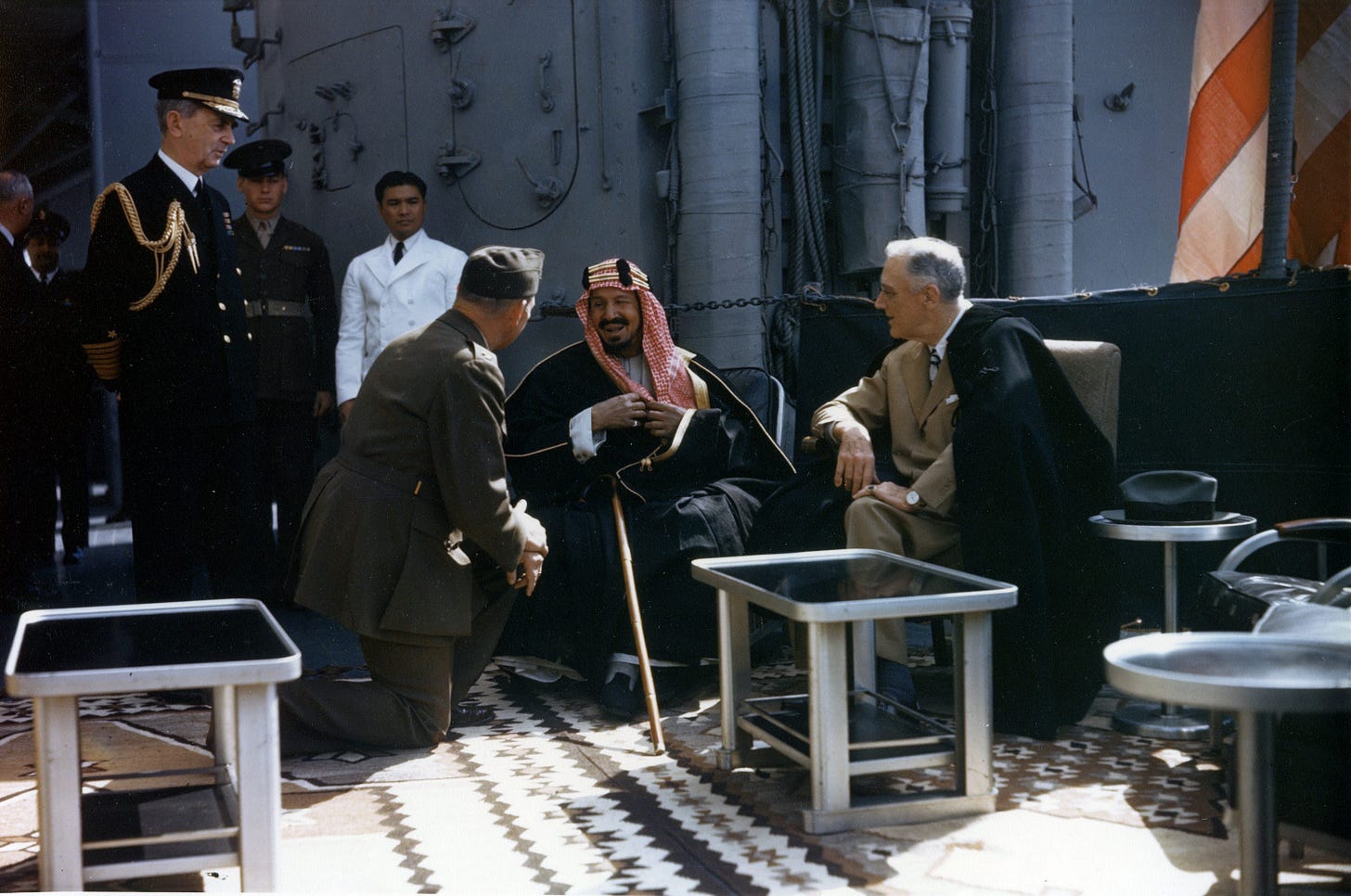World roundup: February 14 2025
Stories from Israel-Palestine, the Democratic Republic of the Congo, Ukraine, and elsewhere
Happy Valentine’s Day to those who are celebrating!
TODAY IN HISTORY
February 14, 1876: Alexander Graham Bell files a patent application for the telephone on the same day when Elisha Gray filed a patent caveat for a similar technology. The US Patent Office later informed Gray of the conflict and he withdrew his caveat, which was less an application than a notification of an intent to file an application and therefore wasn’t as far along as Bell’s claim. Gray later won a court decision finding that the information in his caveat was leaked to Bell and some of it appeared in the latter’s application, but nevertheless Bell became known as the inventor of the telephone and Gray, uh, didn’t.
February 14, 1943: The World War II Battle of Sidi Bouzid begins.
February 14, 1945: Franklin Delano Roosevelt hosts Saudi King Abdulaziz ibn Saud aboard the USS Quincy in the Mediterranean. Roosevelt was sailing home from the Yalta Conference and took the occasion to hold face-to-face meetings with several regional leaders. This one was the first meeting ever between a Saudi royal and a US president. The agreement they concluded (which offered US military protection to the Saudis in return for US access to Saudi oil) created the basic contours of a US-Saudi relationship that has survived (albeit with some rough patches) to the present day.
MIDDLE EAST
SYRIA
With the Syrian government threatening to exclude the Syrian Democratic Forces from a forthcoming “national dialogue” that’s supposed to set the terms of the country’s political transition, The New York Times reports on the apparently stalled negotiations on the SDF’s future:
In recent weeks, many other militias have agreed to dissolve their forces but, in negotiations with the interim government, the Kurdish-led forces have pushed to be merged into the army as a single military bloc that can continue to patrol northeast Syria. They have also pushed for guarantees that Kurdish will be made the official language of Syria’s northeast and that their leaders will continue to administer northeast Syria.
The tensions between the Kurdish forces and the leadership in Damascus come amid uncertainty over Washington’s role in the region. American support for the Kurdish militia has been crucial to keeping threats from the Islamic State in Syria at bay.
But President Trump has not made any commitments to continue supporting the group since his inauguration last month.



